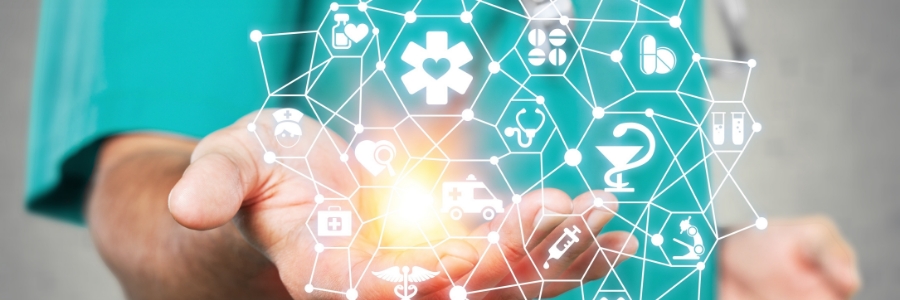 Beyond its original use in securing cryptocurrency, blockchain technology is making waves across various industries, with healthcare being a prime example. This innovative technology holds immense potential to revolutionize how medical data is handled. In this article, we delve deeper into the inner workings of blockchain and its growing significance in the healthcare landscape.
Beyond its original use in securing cryptocurrency, blockchain technology is making waves across various industries, with healthcare being a prime example. This innovative technology holds immense potential to revolutionize how medical data is handled. In this article, we delve deeper into the inner workings of blockchain and its growing significance in the healthcare landscape.
What is blockchain?
At its core, blockchain technology offers a secure and transparent method for recording and storing data. Unlike traditional databases with centralized storage, blockchain distributes information across a vast network of computers. Each transaction is documented in a secure "block," which is then chronologically linked to previous blocks, forming an immutable “chain.” This chain is replicated across the network, ensuring that any attempt to alter a record would be immediately identified by all participants.
Put another way, imagine a shared, tamper-proof ledger system for transactions, akin to a Google spreadsheet, but with a crucial difference: no one without authorization can modify the data. Anyone on the network can view the information, fostering transparency, but control over modifications is restricted to a carefully authorized few. This eliminates the need for a central authority to verify transactions, streamlining the process and bolstering security.
The importance of blockchain in healthcare
The inherent security features of blockchain make it a compelling candidate for revolutionizing healthcare data management. Here's a closer look at how this technology can transform the industry:
Empowering patients with data ownership
Blockchain gives patients more control over their medical records. By storing this data on a secure blockchain network, patients can grant access to specific healthcare providers while maintaining ultimate say over who sees their information. This fosters a sense of autonomy and privacy for patients.
Streamlining administrative processes
The current healthcare system is often burdened by slow and cumbersome administrative tasks, frequently involving multiple parties and layers of bureaucracy. Blockchain can streamline these processes by facilitating secure and instantaneous transactions.
Consider a scenario where insurance claims are verified and processed automatically, or payments between hospitals and providers happen seamlessly. These examples illustrate blockchain's potential to improve efficiency and reduce administrative burdens.
Enhancing research and collaboration
Secure and transparent data sharing is crucial for medical research advancements. Blockchain can create a secure platform for researchers to access anonymized patient data, accelerating breakthroughs and personalized medicine approaches. Additionally, collaboration between healthcare institutions becomes easier with a secure and tamper-proof data exchange system.
Improving supply chain management
Counterfeit drugs and medical equipment pose significant risks to patient safety. Blockchain can be used to track the movement of medications and equipment throughout the supply chain, ensuring authenticity and preventing counterfeit products from entering the system.
The impact of blockchain on security and costs
In addition to the above points, blockchain can also assist in addressing the intertwined issues of security and costs. Data loss continues to be an issue for the healthcare industry. According to the HIPAA Journal, in 2023, there were 725 data breaches that exposed the records of approximately 123 million people. In addition, ransomware attacks targeting healthcare institutions almost doubled between 2022 and 2023, with 46 attacks occurring last year (affecting 141 hospitals).
This has forced hospitals and other members of the healthcare sector to invest heavily in data security measures. Fortunately, blockchain offers a cost-effective solution. By eliminating the need for intermediaries and streamlining processes, blockchain can reduce administrative security costs. Furthermore, its inherent security features can significantly lower the risk of costly ransomware attacks.
The future of blockchain in healthcare
While blockchain technology is still in its early stages of adoption within healthcare, its potential is undeniable. By offering a secure, transparent, and patient-centric approach to data management, blockchain has the power to transform the way healthcare operates. From empowering patients to streamlining administrative tasks, this technology promises a future where patient data is secure, healthcare processes are efficient, and collaboration flourishes.
Learn more about how the latest technology can benefit your healthcare organization by speaking with one of our experts. Contact us today.


